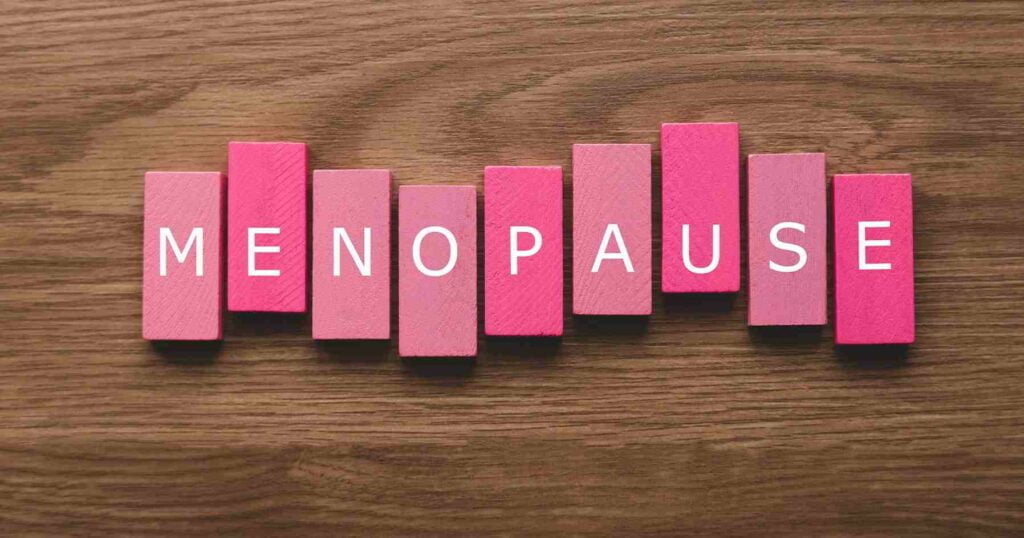As women transition through menopause, a significant chapter in their lives unfolds. While the symptoms and challenges of menopause are well-documented, what happens post-menopause often remains a less-explored territory. Post-menopause, which typically begins around the age of 51, brings its own set of changes and adjustments. In this blog, we’ll delve into the unique post-menopause symptoms that can arise during this phase and discuss strategies for effectively managing and embracing this new chapter of life.
Contents
What Is The Post-Menopause Cycle?
 The post-menopause cycle refers to the stage in a woman’s life following the completion of menopause. This is typically marked by 12 consecutive months without a menstrual period. Menopause itself is the cessation of a woman’s reproductive ability, characterized by a decline in hormonal activity, particularly a decrease in estrogen and progesterone production. Post-menopause, starting around the age of 51 on average, signifies the permanent conclusion of the menstrual cycle and the end of fertility.
The post-menopause cycle refers to the stage in a woman’s life following the completion of menopause. This is typically marked by 12 consecutive months without a menstrual period. Menopause itself is the cessation of a woman’s reproductive ability, characterized by a decline in hormonal activity, particularly a decrease in estrogen and progesterone production. Post-menopause, starting around the age of 51 on average, signifies the permanent conclusion of the menstrual cycle and the end of fertility.
During this phase, women no longer experience the hormonal fluctuations and menstrual-related symptoms that characterize the reproductive years. Instead, they enter a stage where the body adapts to a new hormonal balance, leading to physical, emotional, and sexual changes that are distinctive to the post-menopausal period. Managing these changes effectively becomes a central focus in promoting overall well-being and health in this stage of a woman’s life.
What Are Some Post-Menopause Symptoms?
Post-menopause, women may experience a range of symptoms as the body adjusts to the new hormonal balance. These symptoms can vary in intensity and duration among individuals. Some common post-menopause symptoms include:
Hot Flashes and Night Sweats
Post-menopausal hot flashes and night sweats can persist for some women, although they may occur less frequently or with reduced intensity compared to the menopausal transition. These sudden and intense feelings of heat, often accompanied by sweating, can disrupt sleep and daily activities. Lifestyle adjustments, such as wearing breathable fabrics, maintaining a cool sleeping environment, and avoiding triggers like spicy foods and caffeine, may help alleviate these symptoms.
Vaginal Dryness
A decline in estrogen levels post-menopause contributes to vaginal dryness, which can result in discomfort, itching, and pain during sexual activity. The thinning of vaginal tissues, known as vaginal atrophy, is a common concern. Moisturizers, lubricants, and topical estrogen treatments prescribed by healthcare professionals are commonly recommended to relieve symptoms and maintain vaginal health.
Bone Density Loss
Post-menopause is associated with a higher risk of osteoporosis and bone fractures due to reduced estrogen levels. Estrogen plays a crucial role in bone health by helping to maintain bone density. Weight-bearing exercises, a diet rich in calcium and vitamin D, and, in some cases, prescribed medications may be advised to minimize bone density loss and reduce the risk of fractures.
Changes in Metabolism and Weight
The metabolic rate tends to slow down post-menopause, making it more challenging for women to maintain a healthy weight. Fat distribution may shift towards the abdominal area. Engaging in regular physical activity, adopting a balanced and nutritious diet, and monitoring caloric intake become essential components of managing weight and promoting overall health during this stage.
Mood Swings and Emotional Changes
Hormonal fluctuations, particularly the decline in estrogen levels, can influence mood and emotional well-being in post-menopausal women. Some may experience heightened anxiety, irritability, or mood swings. Maintaining a healthy lifestyle, engaging in stress-reducing activities such as meditation or yoga, and seeking emotional support from friends, family, or mental health professionals can be instrumental in managing emotional changes during this phase.
Sleep Disturbances
 Post-menopausal sleep disturbances are common and can manifest as difficulty falling asleep, staying asleep, or experiencing overall poor sleep quality. Hormonal fluctuations, night sweats, and other physical symptoms may contribute to sleep disruptions. Establishing a consistent sleep routine, creating a comfortable sleep environment, and addressing specific symptoms through lifestyle changes or medical interventions can help improve sleep patterns.
Post-menopausal sleep disturbances are common and can manifest as difficulty falling asleep, staying asleep, or experiencing overall poor sleep quality. Hormonal fluctuations, night sweats, and other physical symptoms may contribute to sleep disruptions. Establishing a consistent sleep routine, creating a comfortable sleep environment, and addressing specific symptoms through lifestyle changes or medical interventions can help improve sleep patterns.
Cognitive Changes
While research on cognitive changes during post-menopause is ongoing, some women report subtle shifts in memory and cognitive function. Hormonal fluctuations, sleep disturbances, and other factors may contribute to these changes. Engaging in mentally stimulating activities, maintaining a healthy lifestyle, and seeking professional advice if cognitive concerns are significant can support cognitive well-being during this stage.
Decreased Libido
Changes in hormonal levels, particularly a decrease in estrogen, can contribute to a decline in sexual desire and arousal post-menopause. Vaginal dryness and discomfort may also impact sexual satisfaction. Open communication with a partner, exploring different forms of intimacy, and seeking medical advice for potential solutions such as hormone therapy or lubricants can help address issues related to decreased libido.
Urinary Incontinence
Post-menopausal women may experience urinary incontinence due to weakened pelvic floor muscles and changes in tissue structure. This can result in leakage during activities such as coughing, sneezing, or exercising. Pelvic floor exercises, lifestyle modifications, and medical interventions, including medications or surgical options, may be recommended to manage and alleviate urinary incontinence.
Joint Pain
Some women may encounter joint pain and stiffness during the post-menopausal years. While the exact relationship between hormonal changes and joint symptoms is not fully understood, factors such as aging and lifestyle may contribute. Engaging in regular, low-impact exercise, maintaining a healthy weight, and managing joint discomfort through over-the-counter pain relievers or medical interventions can help mitigate joint pain associated with post-menopause.
It’s important to note that not all women will experience the same symptoms. And the severity of symptoms can vary. Managing post-menopausal symptoms often involves a combination of lifestyle adjustments, hormonal therapies (if deemed appropriate), and regular medical check-ups to address specific health concerns.
What Are Some Tips To Help Post-Menopause Symptoms?
 Managing post-menopause symptoms involves adopting a holistic approach that encompasses lifestyle changes, self-care practices, and, in some cases, medical interventions. Here are some tips to help alleviate and manage post-menopause symptoms:
Managing post-menopause symptoms involves adopting a holistic approach that encompasses lifestyle changes, self-care practices, and, in some cases, medical interventions. Here are some tips to help alleviate and manage post-menopause symptoms:
- Healthy Eating
Maintain a balanced and nutritious diet rich in calcium, vitamin D, and other essential nutrients. This can support bone health and overall well-being. Include plenty of fruits, vegetables, whole grains, and lean proteins in your diet.
- Regular Exercise
Engage in regular physical activity to help manage weight, strengthen bones, and improve mood. Both aerobic exercises (such as walking, swimming, or dancing) and strength training are beneficial. Aim for at least 150 minutes of moderate-intensity exercise per week.
- Stay Hydrated
Adequate hydration is essential, especially if experiencing hot flashes or night sweats. Limit caffeine and alcohol, as they can contribute to dehydration and may exacerbate symptoms.
- Manage Stress
Practice stress-reduction techniques such as meditation, deep breathing exercises, or yoga. Stress management can positively impact mood swings and emotional well-being.
- Adequate Sleep
Establish a regular sleep routine and create a comfortable sleep environment. Address sleep disturbances by managing hot flashes, reducing caffeine intake in the evening, and seeking professional advice if necessary.
- Pelvic Floor Exercises
To address urinary incontinence, incorporate pelvic floor exercises (Kegel exercises) into your routine. Strengthening these muscles can help improve bladder control.
- Maintain a Healthy Weight
Focus on achieving and maintaining a healthy weight through a combination of regular exercise and a well-balanced diet. This can help manage metabolic changes associated with post-menopause.
- Regular Health Check-ups
Schedule regular check-ups with your healthcare provider to monitor overall health, address specific concerns, and discuss preventive measures such as bone density screenings and cardiovascular assessments.
- Open Communication
Discuss any concerns or changes in symptoms with your healthcare provider openly. They can provide guidance, recommend appropriate interventions, and ensure that you receive personalized care tailored to your needs.
It’s important to note that individual experiences with post-menopause can vary, and what works for one person may not be suitable for another. Consulting with a healthcare professional is crucial for personalized advice and a comprehensive approach to managing post-menopausal symptoms.
Conclusion
In conclusion, navigating post-menopause symptoms is a unique journey for every woman, and managing those associated symptoms can greatly contribute to overall well-being. From hot flashes and vaginal dryness to bone health and emotional changes, embracing this new chapter involves a combination of lifestyle adjustments, open communication with healthcare providers, and a commitment to self-care. Regular exercise, a balanced diet, and stress management play crucial roles in promoting physical and mental health during post-menopause.
Remember, seeking support from peers, staying informed, and being proactive about health check-ups are essential steps toward embracing positive aging and celebrating the wisdom that comes with this phase of life. Each woman’s experience is individual, and with the right mindset and strategies, post-menopause can be a time of growth, self-discovery, and continued well-being. If you are facing menopause-related issues, menopause treatment at HerMantra can help. Book your free trial online menopause treatment session now.


